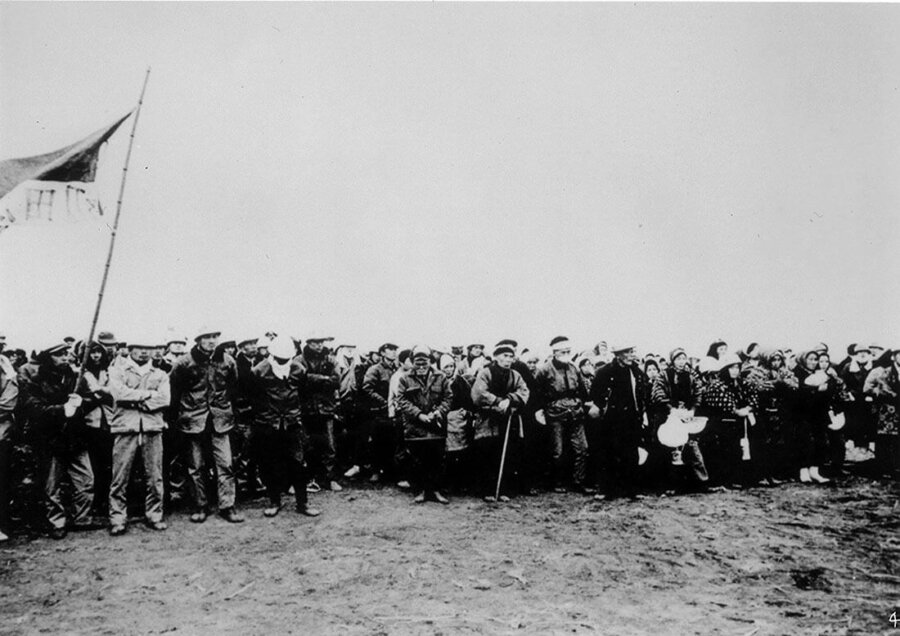
Cinema
Shinsuke Ogawa & Ogawa Pro
A retrospective
From 03 to 28 April 2018
Jeu de Paume – Paris
Shinsuke Ogawa (Tokyo 1936-1992) is a major figure in the world of documentary filmmaking. His work and ideas occupy a unique position in the history of Japanese cinema. This almost complete retrospective shows all the most important films he made with Ogawa Productions, the collective founded in 1968 during the student revolt.
These deeply engaged films passionately and doggedly relate the political and social upheavals that roiled Japan in the 1960s and 1970s. For over thirty years, the members of Ogawa Productions lived and worked collectively, striving to make their decisions as a community and looking for an alternative way of making and showing films. They developed close relations with the persons they filmed, and spent long periods living and working with them.
Ogawa Pro’s documentaries can be divided into three main periods: his first independent films reflect the energy of the student protest movements active in Japan in the late 1960s. In the second period, representing the ten years that followed, Shinsuke Ogawa and the members of the collective were based in the village of Heta, in the rural Sanrizuka region, near Tokyo. There, between 1968 and 1977 they produced a series of films chronicling the years of struggle by farmers and other forces fighting together against expulsion to allow construction of the international airport at Narita, in the face of brutal state repression. Finally, having perfected their methods and developed profound empathy with rural communities, the collective moved to the small mountain village of Magino in Yamagata Prefecture, in the north of the country. For years they lived in the community and worked in the rice fields. They produced meticulously made films about agriculture, village life and the history of ancient and modern Japan.
Programming: Ricardo Matos Cabo.
In partnership with the Cinéma du Réel festival and the Athénée Français Cultural Centre, Tokyo.
With the collaboration of the Japan Foundation and the Yamagata International Documentary Festival.
With the support of the Maison de la Culture du Japon.
